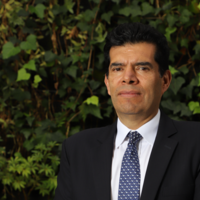El Estado Laico en Colombia: un Principio y un Derecho Innominado
Fecha de creación: 05/03/2024Tipología: Productos Resultados de Actividades de Generación de Nuevo Conocimiento
- Detalles de la producción
- Autores/inventores y/o titulares
- Objetivos de Desarrollo Sostenible
- Identificadores asignados (DOI/ISBN/ISSN)
- Referencias en colaboración
- Referenciado en redes científicas
Nombre de la producción
El Estado Laico en Colombia: un Principio y un Derecho Innominado
Tipología de la producción
Productos Resultados de Actividades de Generación de Nuevo Conocimiento
Fecha de publicación del producto
27/01/2023
Descripción de la producción
El presente artículo se centra en el análisis de la influencia de la jurisprudencia de la Corte Constitucional en Colombia en relación con la consolidación del Estado laico y la protección de los derechos humanos. En tal sentido nos enfocaremos en examinar cómo las decisiones de la Corte Constitucional han contribuido a garantizar la separación entre la Iglesia y el Estado, promoviendo la neutralidad religiosa en las instituciones públicas y asegurando el ejercicio libre de diferentes creencias y prácticas religiosas. Asimismo, se explorará cómo estas decisiones judiciales han reforzado la protección de los derechos humanos, asegurando la igualdad, la libertad de conciencia y la no discriminación en el ámbito religioso. Desde otra perspectiva y como parte integral del desarrollo del presente artículo, se analizará cómo la falta de tributación por parte de las iglesias se ha materializado en una contradicción a los principios de igualdad y neutralidad que debería ostentar el Estado frente a la religión. El problema de investigación por el cual se cimentaron las respectivas indagaciones y el proceso de síntesis teórica se puede sintetizar en dos interrogantes: ¿Cuál es el impacto de la jurisprudencia de la Corte Constitucional en la consolidación del Estado laico y la protección de los derechos humanos en Colombia?
Clasificación Internacional Normalizada de la Educación (CINE)
Derecho































